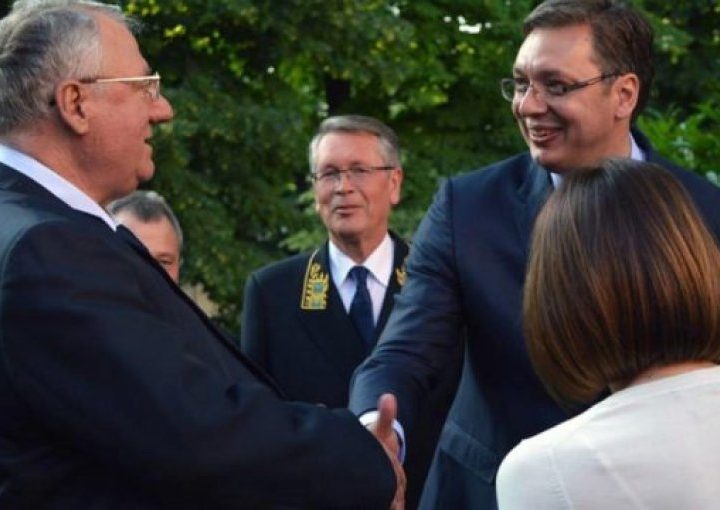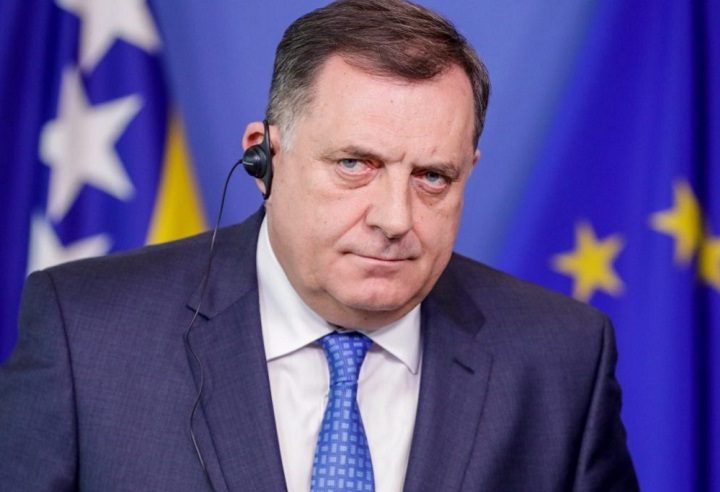
Two decades ago, Serbian media wrote about the involvement of some members of the Security and Information Agency (BIA) in the assassination of former Prime Minister Zoran Djindjic.
Serbian journalists wrote that despite the official announcements that this case would be handled by the BIA after the assassination of Djindjic, on the contrary, it was not considered even during the state of emergency.
Only the work of the media and the judiciary was considered, although the Serbian government had stated that the question of responsibility would be raised for each official involved.
After the assassination of the former Serbian prime minister, there were suspicions that BIA members played a very important role in providing logistical support to the organizers and perpetrators of the assassination.
This suspicion was later confirmed by the arrest of two BIA members, Branislav Bezarević and Toni Gavrić.
They both “secured” the villa in Dedinje where Djindjic lived, and that Bezarević had received a bribe of 1,200 euros from a member of the “Zemun clan” to provide information about the movement of the former prime minister’s car towards the Serbian government building March 12, thus the fateful day of the assassination.
A few days after his murder, Jovica Stanisic, head of the State Security Department (RDB) from 1991-1998, and his close associate Franko “Frenki” Simatović, one of the founders of the notorious Special Operations Unit (JSO), were arrested.
Subsequently, the former deputy head of the BIA, Milorad Bracanović, was also arrested. He was Andreja Savić’s deputy and both were replaced in February 2003, but Bracanović nevertheless remained in the BIA’s leadership position.
Bracanović joined the Department of State Security in the 1970s, where he held an important position until the mid-1990s, when he was appointed JSO chief and deputy commander of that formation.
He was in that position at the time of the murder of four members of the PSP on October 3, 1999 and at the time of the kidnapping and murder of former Serbian President Ivan Stambolic on August 25, 2000, while the commander of the JSO was Milorad Lukovic – Legija .
After the October 5, 2000 protests, Bracanović remained in the same position, and after the November 2001 rebellion by JSO members, he was promoted to vice president of the BZHR, where he remained until January 2003.
As many informal sources of the time confirmed during negotiations with JSO representatives, one of the conditions of the “Red Berets” was that Bracanović be appointed deputy chief. Savić and Bracanović then succeeded Goran Petrović and Zoran Mijatović, whose resignations were demanded by the “rebels.”
At the time, Serbian Interior Minister Dusan Mijajlovic repeatedly mentioned “moles” in the ranks of the police and the former RDB. At the time of publication, authorities had not provided any information about Bracanovic’s role or the reason for his arrest.
All that was said was that Bracanovic was arrested during the investigation into Djindjic’s murder because there were reasonable grounds to suspect that he had misused his official position during Slobodan Milosevic’s regime.
It was also stressed that the investigation had also confirmed Bracanović’s close relationship with the leaders of the “Zemun clan.” /Telegrafi/

 “Russia is trying to start a war in the Balkans”
“Russia is trying to start a war in the Balkans”  How did the Vučić-controlled media conceal the EC’s findings for Serbia?
How did the Vučić-controlled media conceal the EC’s findings for Serbia?  Sesel joins Vucic on elections, fear of isolation from the world and regression
Sesel joins Vucic on elections, fear of isolation from the world and regression  Vucic calls parliamentary elections for 17 December, right-wing parties are coming out in three columns
Vucic calls parliamentary elections for 17 December, right-wing parties are coming out in three columns  Why is Vucic waiting until the last days to call elections for 17 December?
Why is Vucic waiting until the last days to call elections for 17 December?  Dodik called for “Greater Serbia” in Russian Sputnik, Montenegro and Albania reacted strongly
Dodik called for “Greater Serbia” in Russian Sputnik, Montenegro and Albania reacted strongly